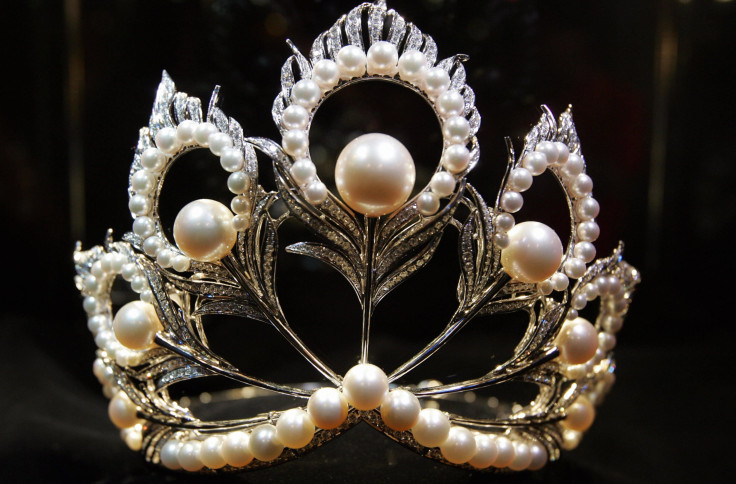Mrs America Contestants, Including 3 African-Americans, Accuse Pageant President Of Racist Remarks

Three African-American and one white state pageant winners called for an apology from CEO and president of the 2018 Mrs. America in a news conference Monday for allegedly using racial slurs and stereotypes in a conversation.
They said, at the news conference in Manhattan with lawyer Gloria Allred, David Marmel used the N-word and invoked racist stereotypes that demeaned the African-American community.
Allred said the contestants have no plans to file a lawsuit or seek damages from Marmel or the pageant, but want an apology and assurance that no one else will be subjected to similar treatment.
"They simply want the Mrs. America pageant to be a place where everyone is respected, is treated equally and feels safe," Allred said.
Marmel said he was “blindsided” by the accusation adding that none of the contestants shared their issues with him about the conversation in question. He told CNN the accusations were "untruthful, self-serving, nonsense bordering on reverse discrimination."
He said the pageant's history of having African-American contestants was a sign of his support for the community.
The women said the comments were made at a pre-competition party on Aug. 21 night, in a penthouse of the Westgate Las Vegas Resort and Casino. The three African-American women who accused him were Kimberly Phillips (Delaware), Brandy Palacios (Missouri), and Crissy Timpson (New Jersey).
New post (Mrs. America Co-Founder Accused Of Making Racist Remarks, Using Slur) has been published on Breaking News - https://t.co/dO53FRbclC pic.twitter.com/d6IS5SSLmp
— Breaking News Home (@BreakingNewsHom) October 16, 2018
Phillips said Marmel approached her on the night as she was sitting with another contestant. Palacios and Timpson passed by but he invited them into the conversation.
"He (Marmel) then said that it is not the 1960s anymore and black people can't rely on the government for assistance. He also stated that all black women need to stop having babies — with four baby daddies — and all black men are in jail because they need to stop selling drugs and killing each other," Phillips said, according to a report in the Guardian.
Palacios said Marmel talked about how he thought athletes kneeling during sporting events was disrespectful to the African-Americans he served alongside in the Vietnam War.
According to Palacios, while speaking of his contributions to the African-American community, Marmel said Ebony magazine's newsroom was one of the most racist places he worked at as everyone, including him, used the N-word "because they were 'brothers.'"
"At this point, he rolled up his sleeve and put his arm next to mine in order to compare skin colors," she said.
According to Timpson, she already had a preview of Marmel's attitude before the competition. She recalled meeting him in an office where he talked about serving in the military.
"I thought that was going to be the end of the conversation but then said, and I quote, 'The a-----e who kneels needs to stop disrespecting my flag,'" she said.
Timpson said she responded that the gesture, which she assumed was referring to the athletes who knelt in protest, was about police brutality. She said he was horrified when Marmel repeated the comments at the party but also felt validated as other women experienced what she did.
Marmel said the comments were misconstrued. He said people at Ebony told him "racially insensitive and prejudicial jokes," but added he didn’t characterize those people as racist. He acknowledged using the N-word in what he called a “friendly” conversation about growing up in the segregated South as a Jewish person. The story was shared in an attempt to relate to the women, he added.
"I was affected at the same level; I, too, was discriminated against," he said.
Another contestant, Jeri Ward (Ohio), said she overheard the conversation from across the room, but did nothing about it. She said she regretted her inaction as a white woman.
All three woman said they feared speaking up despite being let down by the organization. After the competition, the three African-American women thought no one would believe their allegations since they did not win.
"People would think we were just upset about either not winning or placing the way we wanted," Phillips said. "I'm hoping that by sharing my story, changes will occur within the Mrs. America pageant system."
© Copyright IBTimes 2025. All rights reserved.





















